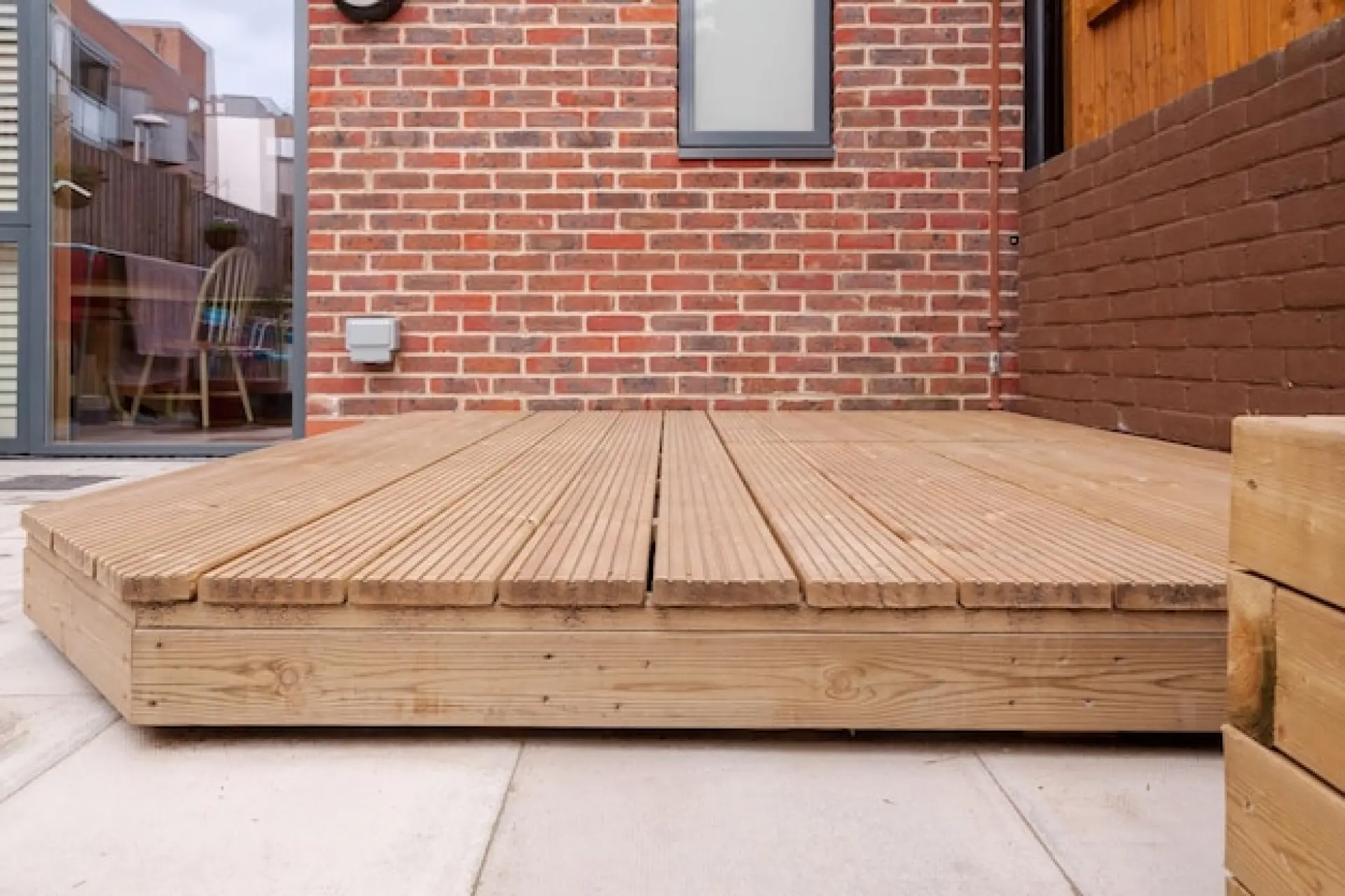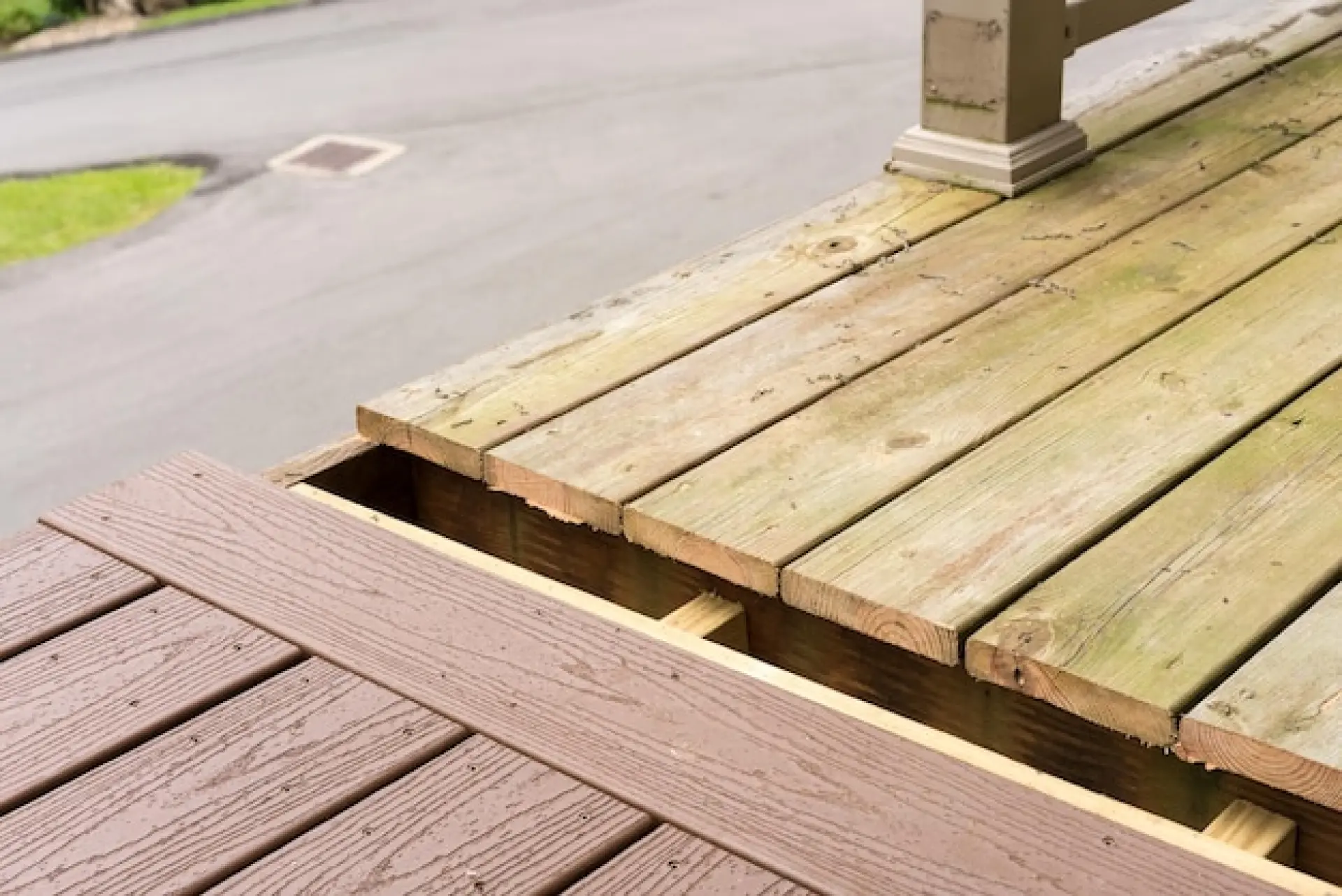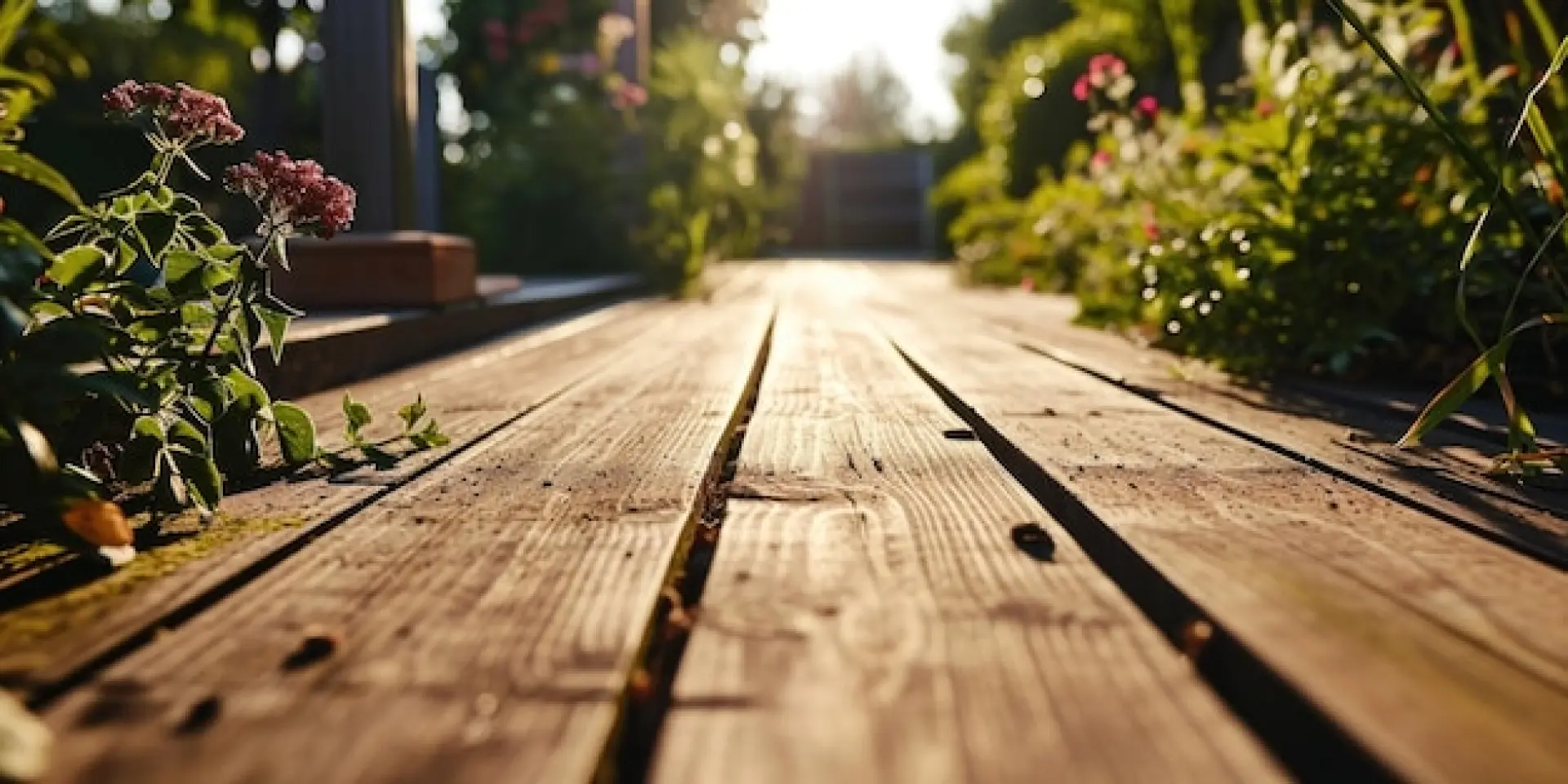Navigate choosing the right decking material with our comprehensive guide. Understand options like wood, composite, and PVC decking for your UK home.
Types of Decking Materials Available
Choosing the right decking material starts with understanding the options available. The most common choices include wood, composite, and PVC decking. Wood decking offers a natural look and includes softwood options like pine and hardwood varieties such as teak or oak.
Composite decking is made from a mix of wood fibres and plastic, providing a durable alternative to traditional wood.
PVC decking is fully synthetic, offering high resistance to moisture and pests. Other options include aluminium decking, which is lightweight and rust-resistant. Each material has unique benefits, so your choice will depend on factors such as budget, aesthetic preference, and the level of maintenance required over time.
Wood vs Composite Decking
Wood and composite decking each have advantages and drawbacks. Traditional wood decking provides a classic appearance and can be stained or painted to match your outdoor space. However, it requires regular maintenance, including sealing and treating for weather protection.
Composite decking, made from recycled wood fibres and plastic, offers a more durable and low-maintenance option. It resists rot, warping, and insect damage while maintaining a wood-like appearance. However, it tends to be more expensive than natural wood.
If you prefer a low-maintenance solution, composite decking may be the best choice. However, if you like the natural feel of real wood and don’t mind regular upkeep, wooden decking remains a popular option.

Wood decking provides warmth and authenticity, making it an excellent choice for traditional garden spaces or homes with a rustic aesthetic. Over time, wood develops a natural patina, which some homeowners find appealing.
However, it is prone to cracking, splintering, and fading, especially when exposed to direct sunlight and moisture.
Treatments such as staining and sealing can extend the lifespan of wood decking, but these require annual reapplication.
In contrast, composite decking is designed to withstand harsh conditions with minimal care. It does not require staining, painting, or sealing.
Durability and Maintenance Considerations
Durability and maintenance play a significant role in decking selection. Wood decking, especially softwood, requires sealing, staining, and occasional repairs to prevent rot and splintering.
Hardwoods last longer but still need maintenance to retain their appearance. Composite decking is designed for durability, with resistance to fading, stains, and moisture damage.
It only needs occasional cleaning with soap and water, making it a hassle-free option. PVC decking offers even greater durability with minimal upkeep, as it is entirely resistant to rot, mould, and insects. Your choice should consider how much time you want to spend maintaining your deck and whether durability is a priority for your outdoor space.
Weather Resistance
The local climate should influence your decking material choice. Wood expands and contracts with temperature changes, which can lead to warping or cracking if not properly treated. It is also more susceptible to moisture damage in humid or rainy climates.
Composite decking is more resistant to temperature fluctuations and moisture, making it a better choice for regions with extreme weather conditions.
PVC decking is completely waterproof and resistant to UV rays, ensuring long-term durability even in harsh environments. For areas with heavy rain or intense sun exposure, composite or PVC decking will offer better longevity than natural wood, which requires ongoing treatment to withstand the elements.

When selecting decking for areas with high levels of moisture, such as near swimming pools or coastal regions, it is essential to choose a material that can withstand constant exposure to water and humidity.
Traditional wood, particularly softwood, can absorb moisture, leading to swelling, warping, and eventual decay. Hardwoods perform slightly better but still require sealing to prevent damage.
Composite decking is an ideal solution as it is designed to resist moisture penetration, reducing the risk of mould and mildew growth.
UV exposure is another consideration, as prolonged sunlight can cause fading and surface deterioration.
Sustainable Decking Options
For eco-conscious homeowners, sustainable decking materials are an excellent choice. Responsibly sourced hardwood certified by the Forest Stewardship Council (FSC) ensures ethical harvesting. Reclaimed wood is another option that repurposes old materials, reducing waste. Composite decking made from recycled plastics and wood fibres is a sustainable alternative to traditional timber.
It helps reduce landfill waste while offering a long-lasting decking solution. Some brands even use 95% recycled materials in their products. Bamboo decking is another eco-friendly choice, as bamboo grows quickly and regenerates without the need for replanting. When selecting sustainable decking, look for materials that minimise environmental impact without compromising on durability and style.
Are you looking for fencing and decking in Milton Keynes? Milton Keynes Fence Installation is the leading contractor for wooden fencing in the area.
We are proud specialists of timber garden fences of all types. We have worked with homes of all sizes and layouts to provide you with a personal, bespoke fencing solution for your property.
